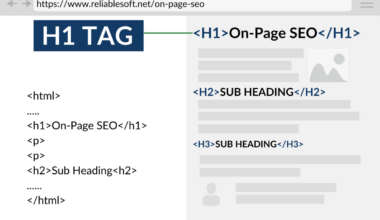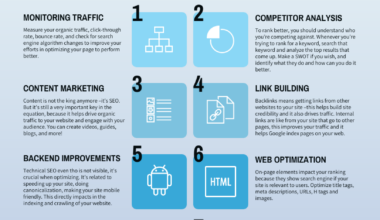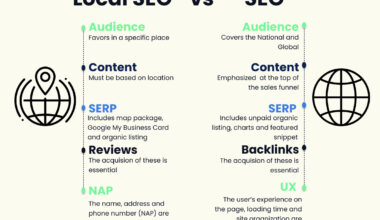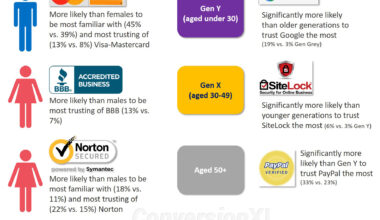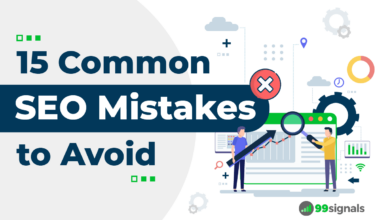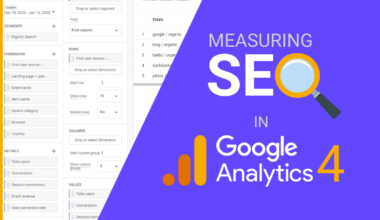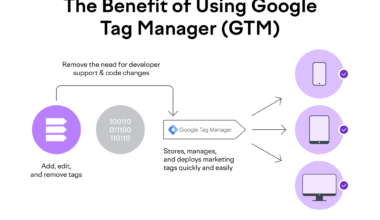An Introduction to PageRank and Domain Authority
If you are familiar with Search Engine Optimization (SEO), you have probably come across the terms “PageRank” and “Domain Authority.” These two concepts are vital to understanding how search engines rank websites and how you can improve your website’s visibility.
PageRank, developed by Google co-founder Larry Page, is a numerical score that measures the importance of a webpage. The score ranges from 0 to 10, with 10 being the highest. The score is determined by the number and quality of links pointing to a webpage. In other words, the more high-quality websites that link to your webpage, the higher your PageRank score will be.
Domain Authority, on the other hand, is a score developed by the SEO software company Moz. This score measures the overall strength of a domain or website. The score ranges from 0 to 100, with 100 being the highest. The score is determined by various factors, including the number of high-quality links pointing to a website, the age of the domain, and the quality of the website’s content.
Both PageRank and Domain Authority are crucial to SEO because they help search engines determine the relevance and authority of a website. Websites with high scores are more likely to rank higher in search engine results pages (SERPs), which leads to more traffic and visibility.
It’s important to note that while PageRank is still used by Google to some extent, it is not the only factor that determines a website’s ranking. Google now uses a complex algorithm that takes into account hundreds of factors, including user experience, mobile-friendliness, and content quality.
In the next sections, we’ll dive deeper into how PageRank and Domain Authority work and how you can improve your scores to boost your website’s SEO.
What is PageRank and How Does it Work?
PageRank is a crucial factor in determining a webpage’s relevance and authority in search engine results pages (SERPs). But how does it work?
Firstly, it’s important to understand that PageRank is based on the idea of citation analysis. This means that a webpage with more high-quality links pointing to it is considered more important or authoritative than a webpage with fewer links.
When a webpage links to another webpage, it is essentially “citing” that webpage as a source of information. The more citations a webpage has, the more likely it is to be considered an authority in its field.
PageRank takes this concept and applies it to the internet as a whole. Google’s algorithm counts the number and quality of links pointing to a webpage and assigns it a score between 0 and 10. The higher the score, the more authoritative the webpage is considered to be.
However, not all links are created equal. Google also takes into account the quality of the websites linking to a webpage. A link from a high-quality, authoritative website will have more impact on a webpage’s PageRank score than a link from a low-quality website.
It’s important to note that PageRank is just one of the many factors that Google’s algorithm takes into account when ranking webpages. Other factors include user experience, content quality, and mobile-friendliness.
So, how can you improve your PageRank score? The most effective way is to focus on creating high-quality, valuable content that other websites will want to link to. You can also improve your score by building relationships with other websites in your industry and encouraging them to link to your content.
In addition, make sure your website is well-optimized for search engines. This includes using relevant keywords in your content, optimizing your meta descriptions and title tags, and ensuring your website is mobile-friendly.
By improving your PageRank score, you can boost your website’s visibility and attract more traffic from search engines.
The Importance of Domain Authority for SEO
While PageRank measures the relevance and authority of a single webpage, Domain Authority measures the overall strength of a domain or website. This score is important because it can have a significant impact on your website’s search engine ranking.
A website with a higher Domain Authority score is more likely to rank higher in search engine results pages (SERPs) for a variety of keywords related to its industry. This is because search engines recognize the website as a trustworthy and authoritative source of information.
So, how can you improve your Domain Authority score? One of the most effective ways is to build high-quality, relevant backlinks to your website. This means acquiring links from other authoritative websites in your industry that are relevant to your content.
Another way to improve your score is to create high-quality, valuable content that other websites will want to link to. This means creating informative blog posts, infographics, and other types of content that provide value to your audience.
In addition, make sure your website is well-optimized for search engines. This includes using relevant keywords in your content, optimizing your meta descriptions and title tags, and ensuring your website is mobile-friendly.
It’s important to note that improving your Domain Authority score takes time and effort. It’s not something that can be achieved overnight. However, by consistently creating high-quality content and building relevant backlinks, you can improve your score over time and boost your website’s search engine ranking.
In conclusion, Domain Authority is an important factor in SEO because it measures the overall strength of a domain or website. By improving your Domain Authority score, you can increase your website’s visibility and attract more traffic from search engines.
How to Improve Your PageRank and Domain Authority
Improving your PageRank and Domain Authority scores can boost your website’s visibility and attract more traffic from search engines. Here are some tips on how to improve your scores:
1. Create high-quality, valuable content: The most effective way to improve your PageRank and Domain Authority scores is to focus on creating high-quality, valuable content that other websites will want to link to. This means creating informative blog posts, infographics, and other types of content that provide value to your audience.
2. Build relevant backlinks: Another way to improve your scores is to build high-quality, relevant backlinks to your website. This means acquiring links from other authoritative websites in your industry that are relevant to your content. You can use tools like Ahrefs or Moz to find websites that are linking to your competitors and reach out to them to see if they would be interested in linking to your content as well.
3. Optimize your website for search engines: Make sure your website is well-optimized for search engines. This includes using relevant keywords in your content, optimizing your meta descriptions and title tags, and ensuring your website is mobile-friendly.
4. Be active on social media: Being active on social media can help you build your online presence and attract more traffic to your website. Share your content on social media platforms like Twitter, Facebook, and LinkedIn to reach a wider audience and encourage others to link to your content.
5. Monitor your scores regularly: It’s important to monitor your PageRank and Domain Authority scores regularly to track your progress and identify areas for improvement. You can use tools like the Moz toolbar or Google Search Console to check your scores and see how they are changing over time.
Improving your PageRank and Domain Authority scores takes time and effort, but by consistently creating high-quality content, building relevant backlinks, and optimizing your website for search engines, you can improve your scores and boost your website’s visibility.
Common Misconceptions about PageRank and Domain Authority
There are several misconceptions surrounding PageRank and Domain Authority that can lead to confusion and inaccurate assumptions. Here are some of the most common misconceptions:
1. PageRank is the only factor that determines a website’s ranking: While PageRank is an important factor in determining a website’s ranking, it is not the only factor. Google’s algorithm takes into account hundreds of factors, including user experience, mobile-friendliness, and content quality.
2. PageRank is the same as Domain Authority: While both scores are related to a website’s authority and relevance, they are not the same thing. PageRank measures the importance of a single webpage, while Domain Authority measures the overall strength of a domain or website.
3. A high PageRank or Domain Authority score guarantees a top ranking in search engine results pages (SERPs): While a high score can improve your chances of ranking higher in SERPs, it does not guarantee a top ranking. Google’s algorithm takes into account many other factors, including user intent and location, when determining rankings.
4. Buying links will improve your PageRank and Domain Authority: Buying links from low-quality, spammy websites can actually harm your scores and lead to penalties from search engines. It’s important to focus on building high-quality, relevant backlinks through organic methods like creating valuable content and building relationships with other websites in your industry.
5. PageRank and Domain Authority are the only factors that matter in SEO: While PageRank and Domain Authority are important factors in SEO, they are not the only ones. It’s important to focus on creating high-quality content, optimizing your website for search engines, and providing a great user experience to improve your chances of ranking higher in SERPs.
By understanding these common misconceptions about PageRank and Domain Authority, you can avoid making inaccurate assumptions and focus on improving your website’s overall SEO strategy. Remember that these scores are just one piece of the puzzle when it comes to ranking higher in search engine results pages.
Final Thought: The Role of PageRank and Domain Authority in SEO
In conclusion, PageRank and Domain Authority are two important factors in SEO that help search engines determine the relevance and authority of a website. While PageRank measures the importance of a single webpage based on the number and quality of links pointing to it, Domain Authority measures the overall strength of a domain or website based on various factors.
Improving your PageRank and Domain Authority scores takes time and effort, but it can have a significant impact on your website’s search engine ranking and visibility. By creating high-quality, valuable content, building relevant backlinks, and optimizing your website for search engines, you can improve your scores and attract more traffic from search engines.
It’s important to remember that while PageRank and Domain Authority are important factors in SEO, they are not the only ones. Google’s algorithm takes into account hundreds of factors when determining a website’s ranking in search engine results pages (SERPs). Therefore, it’s important to focus on creating a holistic SEO strategy that includes all aspects of website optimization, including user experience, content quality, and mobile-friendliness.
In summary, understanding PageRank and Domain Authority is crucial to improving your website’s search engine ranking and visibility. By following best practices and consistently creating high-quality content, you can improve your scores and attract more traffic to your website.











